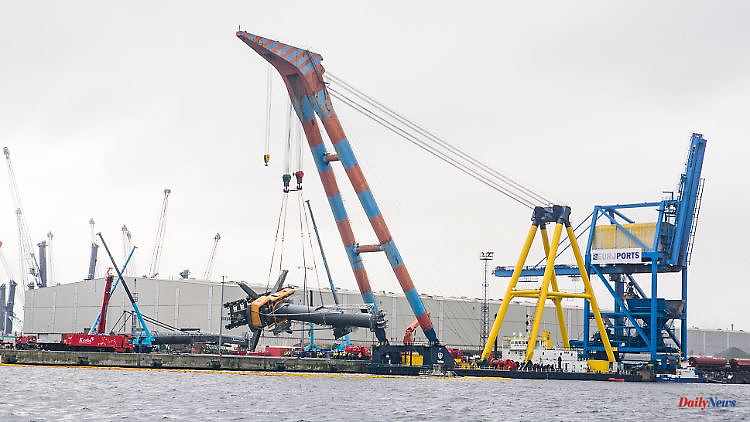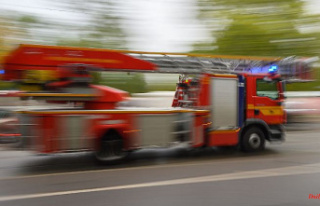In January 2020, two huge cranes are to be loaded in the Rostock overseas port. But something goes wrong and the new machines slip from the ship into the harbor basin. Now the case goes to court.
Rostock (dpa/mv) - The loading accident in harbor basin B of the Rostock overseas port made headlines in 2020. Two brand new mobile harbor cranes, each weighing 400 tons, slide from the ship into the water. Two workers were slightly injured and the damage to property was high. Around three years after the accident, insurers and shippers are meeting in court today (1.30 p.m.) to explore the chances of an amicable settlement.
It's about a lot of money: The claim for damages is 7.5 million euros. During conciliation negotiations, the court should "at every stage of the procedure be mindful of an amicable settlement of the legal dispute or individual points of contention," according to the Code of Civil Procedure. For an amicable understanding, however, both parties must play along. The plaintiff is the sole property and damage insurer of Liebherr GmbH. According to the Rostock district court, the lawsuit is directed against a port handling company. The date for the conciliation hearing had already been postponed.
The two LHM 550 cranes fell into the harbor basin on January 31, 2020 while being loaded onto the Dutch-flagged heavy lift vessel "Jumbo Vision". According to information from the crane manufacturer Liebherr-MCCtec Rostock at the time, the cranes cost three to five million euros.
In 2022 Liebherr celebrated the 300th delivery of this crane type, which can be used for bulk or general cargo as well as container handling. According to the information, one of the two cranes was already on the ship at the time. The accident happened when the second crane was lifted up. Small amounts of oil and diesel also ran out.
About six weeks after the accident, the cranes were recovered from the water with the "Hebo Lift 9" floating crane. The two 50 meter long and 35 ton booms of the cranes had previously been brought ashore with the help of divers. Specialists from the Baltic diving and salvage operation had loosened and divided the outriggers in advance.












